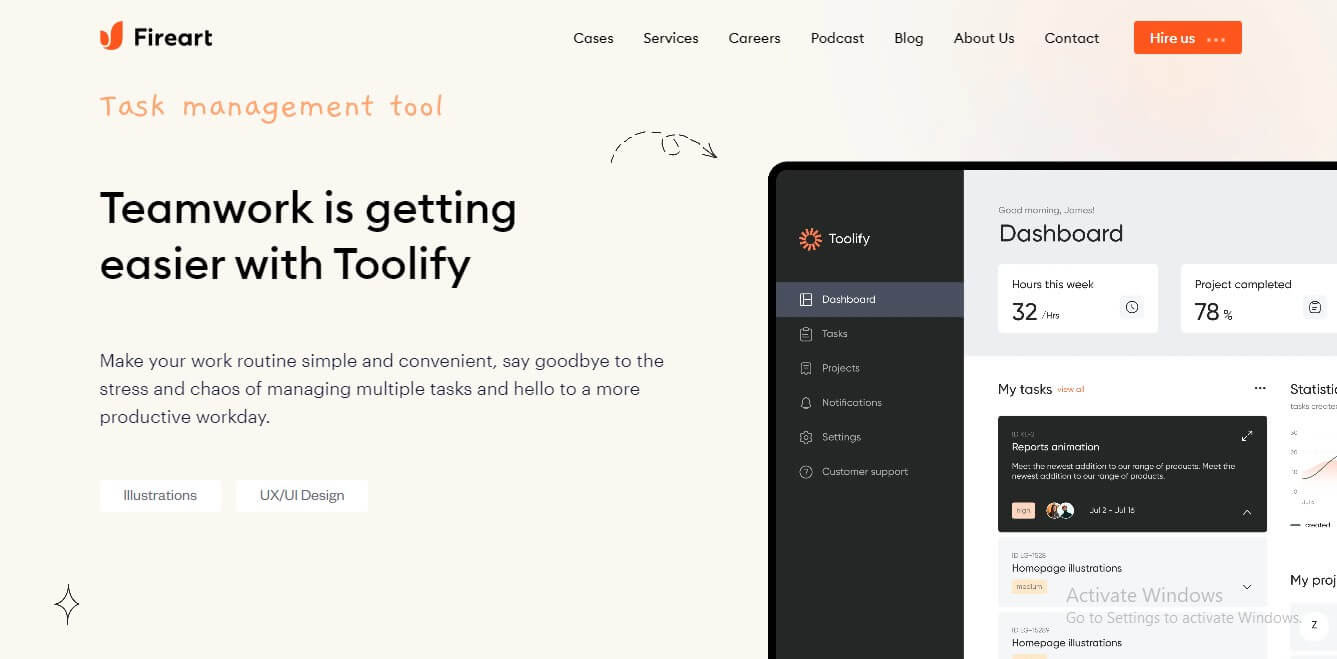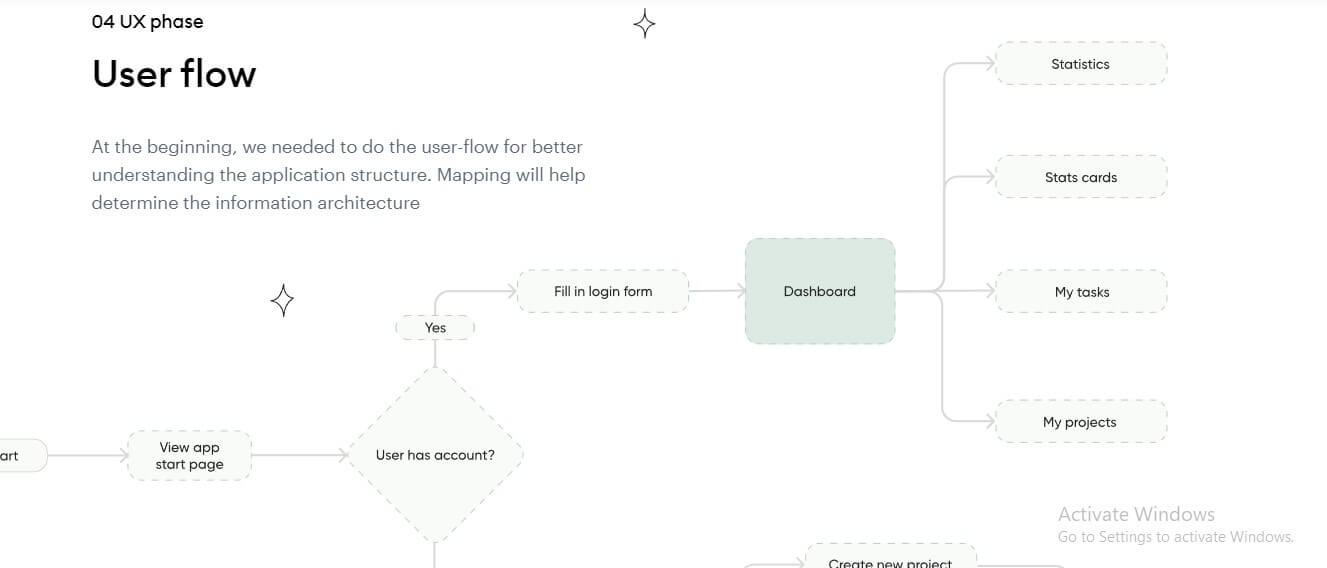Offshore Website Development: Tips and Best Practices for Success
Offshore website development is becoming more popular for firms trying to minimize expenses, boost productivity, and access a larger talent pool. On the other hand, outsourcing web development to an overseas team comes with obstacles and hazards

Balance the pros and cons of offshore website development
Understanding Offshore Website Development: Benefits and Drawbacks
Outsourcing web development tasks to a team in a separate nation is known as offshore website development. This technique offers various benefits, including:
- Cheaper costs,
- Better flexibility, and
- Access to a larger talent pool
However, certain obstacles exist, such as:
- Language limitations
- Cultural differences, and
- Time zone concerns.
When considering whether to pursue offshore website development, assessing the benefits and drawbacks and deciding if outsourcing is the best match for your company is critical.
How to Select the Best Offshore Website Development Company

Choose FireArt Digital Product Agency
Choosing the proper offshore website development partner is critical to your project's success. Consider experience, knowledge, and communication skills while assembling a team. To ensure a successful project, look for a partner with a:
- Successful track record,
- Extensive business knowledge, and
- Desire to work closely with your team
Working with a company that covers all of these areas will promote a successful project and business relationship.
Communication Is Critical in Offshore Website Development
The success of any offshore website development project is dependent on effective communication. Therefore, creating clear communication channels from the start is critical, and ensuring that your offshore staff understands your project's objectives, timetables, and expectations is vital. In addition, make sure you are conducting:
- Regular check-ins
- Progress reports, and
- Project updates
This will ensure that everyone is on the same page and the project is on track.

Tips for Ensuring Quality in Offshore Website Development
The success of any offshore website development project is dependent on quality. Establish defined quality measurements and benchmarks and convey them to your offshore crew to guarantee that your project satisfies your quality requirements. It is also critical to do frequent quality checks and audits, give feedback, and help as required.
Consider the following tips for ensuring quality in offshore website development:

1. Building Long-Term Ties:
One of the primary benefits of offshore website creation is forming long-term ties with the outsourcing partner. Working with a dependable offshore development team allows you to build trust, communication, and mutual understanding, which may lead to a successful and long-term engagement.
Here are some steps you can take to foster a strong working relationship with an offshore website developer:
-
Clear communication: Establish open and transparent communication channels from the beginning. Clearly communicate your project requirements, objectives, and expectations. Encourage the offshore firm to ask questions and seek clarifications. Promptly address any concerns or issues that arise.
-
Define project scope and milestones: Clearly define the project scope, deliverables, and timelines. Break the project into manageable milestones and set specific goals for each stage. This helps both parties understand the project progression and ensures everyone is on the same page.
-
Regular progress updates: Request regular progress updates from the offshore firm. This can be in the form of status reports, weekly meetings, or daily stand-ups. Regular updates allow you to track the project's progress, identify potential issues early on, and provide feedback or guidance when necessary.
-
Build personal relationships: Take the time to build personal relationships with the team members from the offshore firm. Schedule video conferences or arrange face-to-face meetings if possible. Developing a rapport and getting to know each other on a personal level helps foster trust and understanding. Ask the people you interact with at the offshore website developer about the people's lives and interests away from work.
-
Establish a strong project management process: Implement a robust project management process that includes task tracking, issue management, and a change request system. This ensures that everyone is aware of the project's status, changes are documented and communicated effectively, and any risks or challenges are promptly addressed.
-
Encourage cultural awareness: Be mindful of cultural differences and encourage cultural awareness on both sides. Learn about their work culture, traditions, and customs, and share information about your own culture as well. Respect and understanding of cultural differences can enhance collaboration and avoid misunderstandings.
-
Prioritize quality assurance: Establish quality assurance processes and standards to ensure that the delivered work meets your expectations. Conduct regular code reviews, testing, and user acceptance testing to catch any issues early and ensure the final product is of high quality.
-
Establish legal agreements: Clearly define the terms and conditions of the project in a legal agreement or contract. This protects both parties and outlines the agreed-upon terms, including project scope, deliverables, timelines, payment terms, and intellectual property rights.
-
Visit the offshore firm if possible: If feasible, consider visiting the offshore firm's premises. Meeting face-to-face can build trust, strengthen the relationship, and provide insights into their work environment and capabilities.
-
Evaluate and provide feedback: Regularly evaluate the offshore firm's performance and provide constructive feedback. Acknowledge their strengths and offer suggestions for improvement. This demonstrates your commitment to collaboration and helps them understand your expectations better.
2. Effective Communication:
When dealing with an offshore website development company, effective communication is essential. It helps to guarantee that you and your outsourcing partner communicate clearly and openly. Communication procedures and tools must be established from the start of the project to minimize misunderstanding and to guarantee that everyone is on the same page.
Here are some tips to help you communicate effectively:
-
Choose the right communication channels: Determine the most suitable communication channels based on your needs and preferences. Common options include email, instant messaging platforms (e.g., Slack, Microsoft Teams), video conferencing tools (e.g., Zoom, Skype), and project management systems. Use a combination of channels to facilitate different types of communication, such as formal project updates or quick queries.
-
Establish clear communication guidelines: Define communication expectations and guidelines right from the start. Specify preferred response times, working hours, and any specific protocols for urgent matters. This helps ensure that both parties are on the same page regarding communication responsiveness and availability.
-
Use written documentation: Provide clear and concise written documentation to communicate project requirements, objectives, and expectations. This helps avoid misinterpretations and provides a reference for both parties. Use visuals like wireframes, design mock-ups, and flowcharts whenever possible to enhance understanding.
-
Be specific and detailed: When communicating your requirements or feedback, be as specific and detailed as possible. Avoid vague or ambiguous statements that could lead to misunderstandings. Provide examples, reference websites, and screenshots to illustrate your points clearly.
-
Use visual aids: Visual aids, such as diagrams or screenshots, can be valuable in conveying complex ideas or design concepts. Use tools like screen sharing or video conferencing to visually demonstrate or explain your requirements. This visual approach can enhance understanding and reduce the chances of miscommunication.
-
Active listening: Actively listen to the offshore developer's questions, concerns, and suggestions. Pay attention to their feedback and ask clarifying questions if needed. Demonstrating active listening fosters a collaborative environment and helps build trust.
-
Emphasize clear milestones and deliverables: Clearly define project milestones and deliverables, and communicate them effectively to the offshore developer. Break down the project into manageable chunks with specific deadlines. This allows both parties to track progress, align expectations, and assess project status accurately.
-
Provide timely feedback: Promptly provide feedback on completed work or progress updates. Timely feedback allows the offshore developer to address any issues or make necessary adjustments promptly. It also demonstrates your active involvement and commitment to the project.
-
Be open to cultural differences: Keep in mind that cultural differences may influence communication styles and norms. Be open and understanding, and accommodate these differences. Foster a respectful and inclusive environment that encourages open dialogue.
-
Schedule regular check-ins: Set up regular check-in meetings to discuss project status, address questions, and provide feedback. These meetings can be conducted via video conference or phone calls. Regular check-ins help maintain a consistent flow of communication and allow for real-time collaboration.
-
Foster a collaborative mindset: Approach communication with a collaborative mindset. Encourage the offshore developer to share their ideas, suggestions, and concerns. Collaboration leads to a better understanding of each other's perspectives and enhances the overall quality of the project.
3. Quality Control:
It helps to maintain high standards of quality while having a website built overseas. The outsourcing partner should have a dedicated staff to guarantee that the project fulfills the specified quality standards. Quality assurance should include areas of the project such as design, development, testing, and deployment. Here are some tips to help you maintain quality control during offshore website development:
-
Clearly define your requirements: Provide detailed and comprehensive specifications to the offshore development team. Clearly communicate your expectations, desired features, design guidelines, and any other project requirements. This will help minimize misunderstandings and ensure that everyone is on the same page from the beginning.
-
Choose a reliable offshore development partner: Thoroughly research and select a reputable offshore development company with a track record of delivering high-quality work. Look for reviews, testimonials, and case studies of their previous projects. Evaluate their expertise, experience, and the skills of their development team.
-
Establish effective communication channels: Establish clear and efficient channels of communication with the offshore development team. Regularly communicate project updates, requirements, and feedback. Utilize communication tools like email, project management systems, and video conferencing to facilitate smooth and timely communication.
-
Conduct thorough testing: Testing is a critical aspect of quality control. Define a comprehensive testing strategy and ensure that the offshore team follows it. This should include unit testing, integration testing, system testing, and user acceptance testing. Specify the expected testing deliverables and ensure that proper bug-tracking and reporting mechanisms are in place.
-
Enforce coding standards and best practices: Define coding standards and best practices that should be followed by the offshore development team. This includes guidelines for naming conventions, code structure, documentation, and version control. Regularly review the code to ensure compliance with these standards.
-
Monitor progress and milestones: Regularly monitor the progress of the offshore development team. Establish milestones and checkpoints to track the project's progress and ensure that it is aligned with the agreed-upon timeline. Conduct periodic reviews and evaluations to address any issues or concerns early on.
-
Perform code reviews: Regular code reviews are essential to identify and rectify any coding issues or quality concerns. Assign experienced developers to review the code submitted by the offshore team. Code reviews help maintain code quality, identify potential bugs, and ensure adherence to coding standards.
-
Consider cultural and time zone differences: Offshore development teams may operate in different time zones and have different cultural backgrounds. Be mindful of these differences and accommodate them in your project management approach. Establish a schedule that allows for overlap in working hours to facilitate real-time communication and collaboration.
-
Secure intellectual property rights: Ensure that appropriate legal agreements, including non-disclosure agreements (NDAs) and intellectual property (IP) protection clauses, are in place to safeguard your project's code, designs, and sensitive information.
-
Plan for regular project reviews: Schedule regular project reviews with the offshore development team to evaluate the overall progress, quality, and adherence to project requirements. Address any issues or concerns promptly and ensure that the project stays on track.
4. Cost-Effectiveness:
One of the vital reasons why firms prefer to outsource website development abroad is cost-effectiveness. Outsourcing to countries with lower living and labour costs may drastically cut total project costs. However, to guarantee that the project reaches the specified standards, it is necessary to balance cost-effectiveness and quality.
5. Time Zone variations:
Working with an offshore website development team might be difficult due to time zone variations. Keep the time difference in mind when organizing meetings, correspondence, and deadlines. However, time zone variations might be advantageous since they allow round-the-clock production and support.
6. Intellectual Property Protection:
Intellectual property protection is critical when outsourcing website development abroad. It would be best to verify that the outsourcing partner has stringent safeguards to secure sensitive information, such as non-disclosure agreements, intellectual property rights, and data security rules.
7. Selecting the Best Outsourcing Partner:
The success of your offshore website development project hinges on your ability to choose a reliable outsourcing partner. You must undertake extensive research, and assess the outsourcing partner's experience, competence, and reputation.
Now is the time to do so as the software development market is rapidly growing and so is the number of developers. It is predicted that in 2024 the number of software developers will grow to almost 29 million. Is this not your chance to find suitable cooperation partners?

The number of software developers worldwide in 2018-2024
Conclusion
Businesses may gain significantly from offshore website creation, including cost-effectiveness, access to a worldwide labour pool, and the ability to form long-term connections. However, to secure a good end, evaluating the obstacles, such as time zone differences and intellectual property protection, and choosing a suitable outsourcing partner is essential.